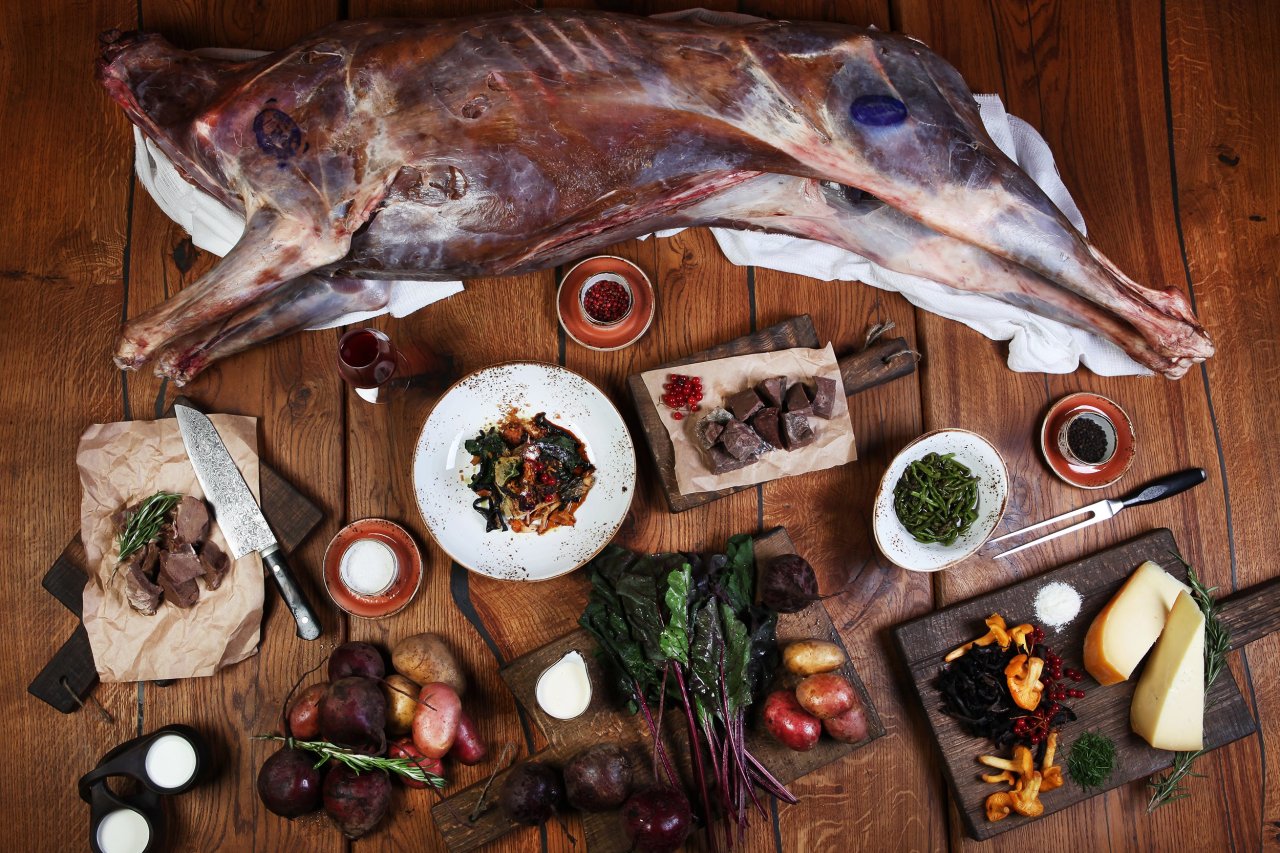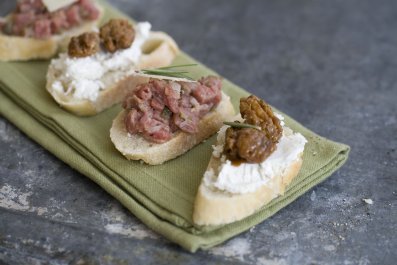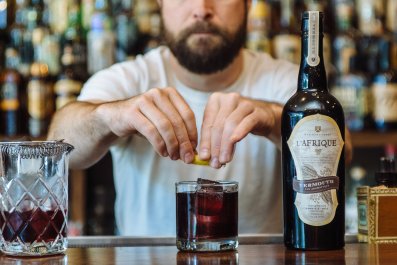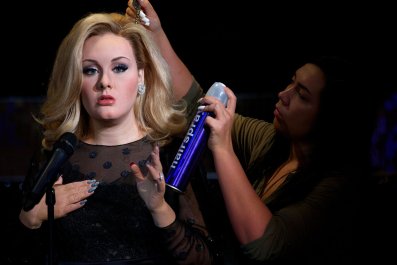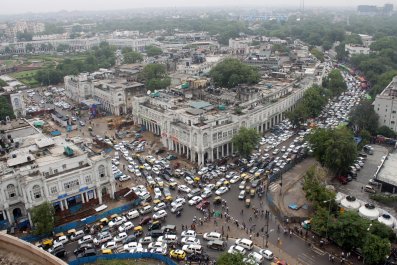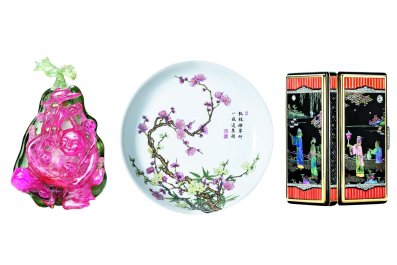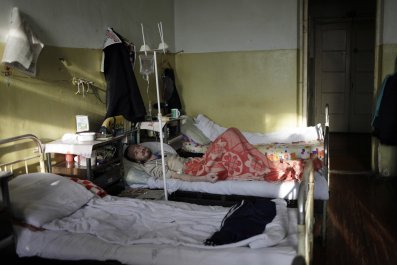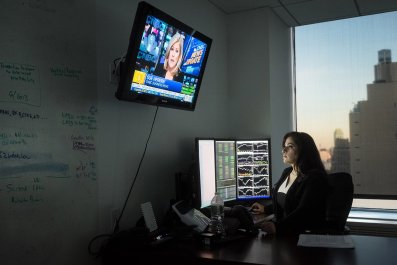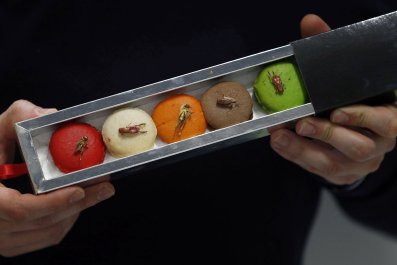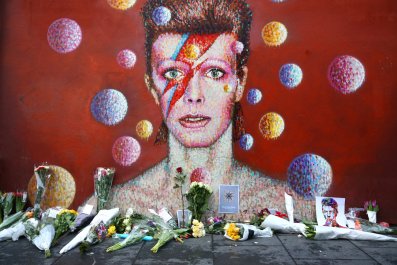Beetroot. You love it, right? And cabbage, obviously. Buckwheat? Turnips? Pork fat with pickled garlic? OK, the basic elements of Russian cuisine might not seem the most promising start to a world-beating culinary culture. But thanks to Kremlin-imposed bans on the import of foodstuffs from Europe, the United States and Turkey, millions of Russians now have little choice. Italian Parmesan, Spanish ham and Greek olives have disappeared from the shelves of upscale Moscow supermarkets. In their place is produce from the farms, fields and woods of Mother Russia.
One of the unintended consequences of Russia's self-imposed food sanctions has been a strange and wonderful renaissance in its cuisine—a hipster-driven, artisanal revolution that has transformed Moscow into one of the most interesting culinary capitals of Europe. Locavore cooking—the movement to eat only local food—is popular in many parts of the world, but in just about everywhere except Russia it's through choice, not necessity. The Russians have made a blessing of it.
"It's a very simple and beautiful idea—the land where you live is the land that feeds you," says Jérôme Rohmer, a veteran of two of France's three-star Michelin restaurants, Arpege in Paris and Pic in Valence, who has just completed a three-month-long stint as the guest chef at the newly opened 15 Kitchen and Bar in Moscow's posh Kropotkinskaya district. "Moscow is such an exciting place to work. The kitchen team are ready to invent everything from scratch."
Rohmer's Russian culinary riffs have included roasted parsnips and roots in carrot sauce and three-ways cauliflower (puree, minced and tempura)—imaginative vegetarian rarities in a meat-and-potatoes city. And while 15 Kitchen's ingredients aren't exactly local fare, they are all brought from the far-flung outposts of Russia—scallops and octopus are fished in the Sea of Japan and flown in from Vladivostok, for instance. The look of 15 Kitchen, though, is pure Shoreditch or Williamsburg hipster, with full-sleeve tattoos, beards and trilby hats apparently obligatory.
Granddaddy of the new Russian locavore chic is Delicatessen, founded by three non-chefs who reinvented themselves as restaurateurs and barmen—growing exotic facial hair in the process. The place is a favorite of the city's arty crowd and is decorated like a bohemian apartment. Delicatessen's bar area is stacked to the ceiling with mysterious homemade infusions—wormwood-infused bourbon, anyone?—that have earned the spot multiple listings on the Best Bars of the World website. A farm-to-table cooperative called LavkaLavka, founded by chef Boris Akimov by teaming up with farmers across Russia in 2008, offers such delicacies as a Russian-produced artisanal Gouda cheese and dozens of varieties of dried and marinated mushrooms, as well as Siberian deer dumplings and Arctic berry preserves.
"We are trying to source from all over Russia," says LavkaLavka spokeswoman Maria Zlatopolskaya. "We are trying to celebrate different areas of Russia, bring the regions to Moscow, to help people know what they have in their own country."
Patriotic dining has spread from the hipster fringe to the city's suit-wearing plutocrats. A recent favorite of moneyed Muscovites is Voronezh, named for an industrial city on the middle Volga River hitherto famous only for UFO sightings and Communist sympathizers—but now, apparently, also as the home of world-class, grass-fed beef. Clients choose their raw cuts from a butcher-style counter and consume them in an opulent dining room that somehow manages to mix factory chic with the aesthetics of a pre-revolutionary palace. The same concept at half the price can be found at Chaban Haus, a popular new eatery on the downtown artery of the New Arbat that sources its meat from the eponymous grasslands of the North Caucasus. And Lepim i Varim (Shape and Boil) has reinvented humble Siberian pelmeni (dumplings) by mixing squid ink, turmeric and spinach into the dough and filling it with salmon, cod and salty Georgian suluguni cheese. Across town, the distinctly un-hipsterish Ah! Beatrice appears conservative and bourgeois—but is devoted to slow food like honey-roasted duck, Black Sea cuttlefish spaghetti and a traditional Ukrainian borscht that explodes with beefy beetroot flavor.
Slow food and farm-to-table are hardly home-grown Russian concepts, of course. But the combination of sanctions and a falling ruble have pushed Moscow's once-marginal locavore chefs and entrepreneurs to the fore. Before the crisis hit last year, writer Michael Idov joked, "Every Moscow restaurant has the same theme—the theme is, you're not in Moscow." But now that dozens of the obnoxiously bling, eye-wateringly expensive restaurants for which the city used to be infamous have closed, it's the hipster-inspired places that are still standing. After two decades of slavishly copying every Western trend to wash up on its shores, Russia is busy forging an original aesthetic—not just culinary but artistic too.
Moscow loves paradoxes. It's been half a generation since the city was so poor—but it has never been more vibrant. From the avant-garde theater at the Gogol Center to the Cosmoscow art fair, exhibitions at the Garage Museum of Contemporary Art, nightly DJ sets at Redaktsiya and public lectures at the Strelka design institute, Moscow is a city bursting with new creative energy. Much of this is thanks to Sergei Kapkov, oligarch Roman Abramovich's right-hand man turned Moscow minister of culture (who resigned in 2015 after a disagreement with the mayor). Kapkov reinvented Gorky Park as a trendy, foodie, arty landmark, built bike lanes across Moscow, scrapped the metal kiosks that used to clutter the pavement and brought in smartphone-based citywide paid parking that has cleared up sidewalk-hogging illegal parking. Muscovites can now get around via Uber, and AirBnB accommodation in the city is a quarter of the price of equivalent homes for rent in New York. There's fast, free Wi-Fi in the metro, and opera and theater tickets cost a third of those in London. Since most Russians can no longer afford to travel to Europe, air fares are also cheaper than usual. All of which makes Moscow the unexpected cultural and gastronomic destination to visit this winter.



